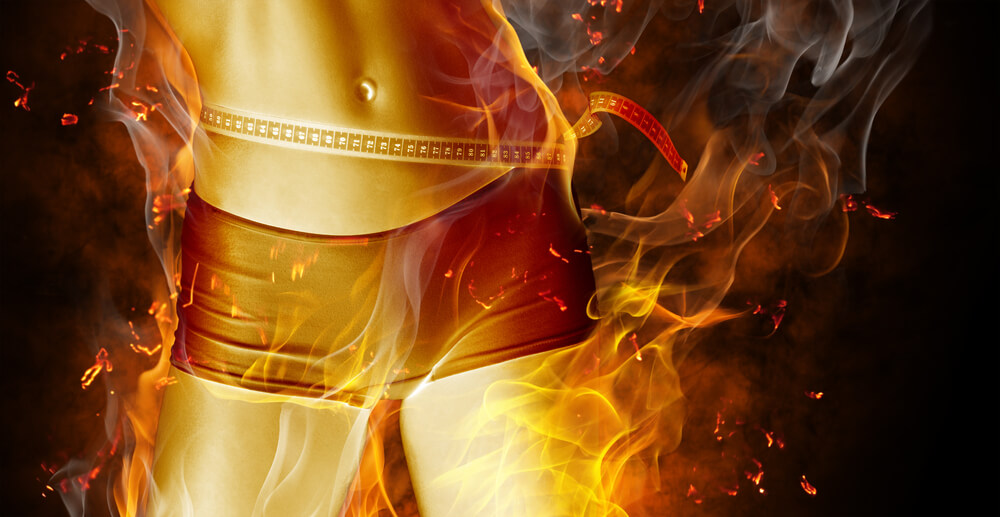
Some foods are better for you than others. That’s a fact! Which ones? Depends on your goal. Trying to lose weight? If so, you’ll want to see this list. Why? These foods can help!
It’s no secret in the world of fitness that, in order to maintain or lose weight, you have to have the correct ratio of calories taken into calories spent. To lose weight, you must lose about 3,500 calories per pound.
The obvious way to lose weight is to consume fewer calories and exercise. You could lift weights, run and play sports or any number of other things. Another way to enhance your weight loss is to boost your metabolism. Of course, this can be done through exercise, but there are many other ways to boost your metabolism. For instance, it is important to eat enough meals, consume fiber, eat a nutritious breakfast, drink water and consume protein.
There are specific foods that can make boosting your metabolism a much easier process. These foods, known as thermogenic foods, help your body burn excess calories even at rest. Thermogenic foods, while interesting, are a relatively controversial topic in fitness. Regardless, research shows that certain foods have a fat burning effect, even if that effect is minimal. If you are trying to lose or maintain your current weight, the following thermogenic foods may be a welcome addition to an already healthy fitness and dietary routine.
What Are Thermogenic Foods And How Do They Work?
Thermogenic foods are foods that, in theory, increase the number of calories the body burns, even at rest. This concept is known as the thermic effect the food.
The idea that food could burn calories rather than add calories may sound strange, but it makes sense when you consider the energy the body must expend to digest, absorb and store the nutrients in these foods. Consider celery, which the body uses more calories to digest than is available in the food. As a result, celery has been advertised as a food with negative calories.
Many factors, such as age, hormones, meal frequency, and size, have an impact on the thermic effect of food for each person. For instance, larger meals require more energy to digest, store and absorb.
Therefore, larger meals have a greater thermogenic effect than smaller meals. That being said, it is important to note that eating larger meals on the whole, will not lead to greater weight loss. After all, without the regard to the thermic effect of food, the number of calories consumed must be lower than the number of calories expended through normal bodily functions such as breathing, day-to-day activities or exercise.
Your body naturally burns about 5 to 10% of calories from each meal that you eat simply from this thermic effect. If you eat a meal with 200 calories, you may only burn about 20 calories. On the other hand, if you eat a meal with 2,000 calories, you will burn about 200 calories. While you technically burn more calories from the second meal, there are still 1,800 additional calories that have not been burned by the thermic effect of food and you will still gain weight.
Some foods do have a higher thermic effect than others. For instance, if you consume proteins, your body may burn about 20 to 35% of those calories through thermic effect. Fats, on the other hand, have low thermic effect, burning only 0 to 5% of calories through digestion, absorption, and storage.
Thermogenic Foods List
Put simply, while the thermic effect of food is very real, basing your weight maintenance on thermogenic foods will yield poor results. However, when combined with a proper diet and exercise, knowing which foods yield the highest thermic effect can be very useful to your weight loss journey. Take a look at our top 10 recommendations of thermogenic foods that you have to try.

#1 Chicken
Protein takes more energy for the body to process, as opposed to fats or carbs, so the thermic effect of protein is high in comparison to other foods, at a rate of about 20 to 35% of calories burned per meal. Bear in mind that this percentage is used in reference to lean proteins such as skinless, white chicken, lean ground beef (about 90/10), turkey or fish.
Again, while a good percentage of calories from fatty meats may still be burned, fatty steaks and high-fat pork products will not aid you in losing or maintaining your current weight. Because chicken is an easy meat to healthily cook, it’s the one we advise.
If you want to make the most of thermogenic foods, lean proteins should be the first item on your clean grocery list.
If you’re a vegetarian, options for lean protein include beans, tofu, nuts and seeds (many nuts are an especially great option).
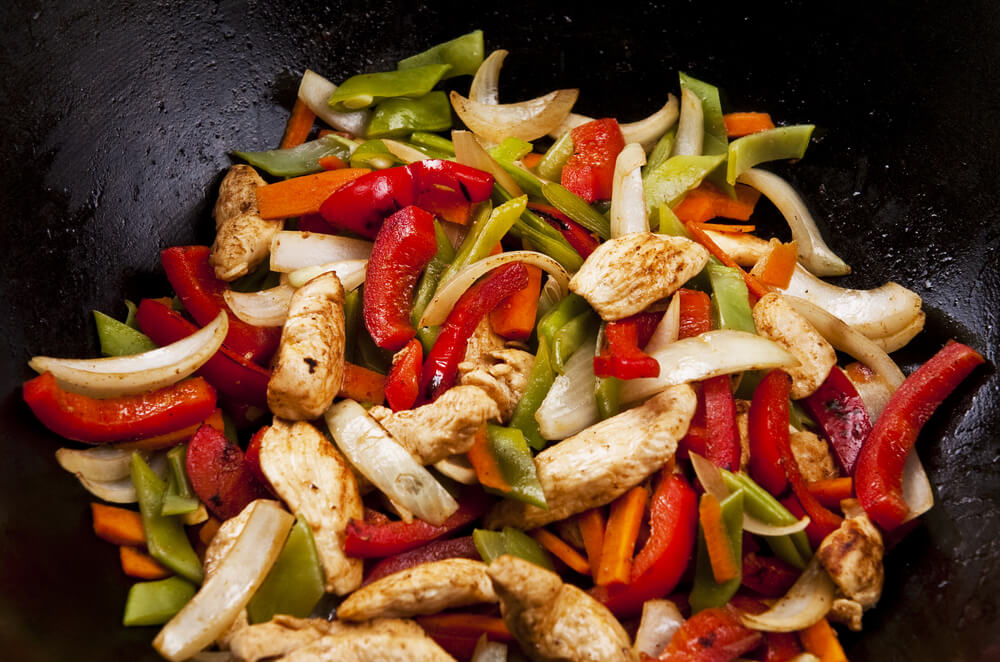
#2 Hot Peppers
Foods with capsaicin boast some impressive medical benefits.
What perks do they offer?
The benefits include analgesia (pain relief), anti-inflammatory properties and positive influences on the cardiovascular and gastrointestinal system.
Sound good?
We thought so!
Hot peppers, including cayenne peppers, chili peppers, and tabasco peppers, contain capsaicin. These foods have the highest levels of capsaicin, but they may not be palatable for all. They may also have unpleasant side effects such as gas, diarrhea or irritation of mucous membranes.
If these are too spicy for your liking, consider sweet peppers. For example, you could opt for bell, cherry or cubanelle peppers. Capsinoids, another compound found in peppers, are structurally similar to capsaicin. With that said, they lack the pungency that makes hot peppers both enticing and, well, spicy.
Try not to overdo it with the heat.
Why?
While capsaicin does have positive effects on the gastrointestinal system when consumed in moderation, high amounts of capsaicin irritate your digestive tract, as well as the mucous membranes on other parts of your body. That includes your eyes (especially if you don’t wash your hands thoroughly after cooking).
It has also been found that the thermogenic effect of capsaicin loses its impact if these spicy foods are consumed too often. The effect is at its highest when consumed sparingly. Capsaicin, like most other foods, is best enjoyed in moderation.

#3 Coffee
Products that contain caffeine are especially good for inciting a high thermogenic effect. Of course, that includes green tea and coffee. Not only can caffeine act as an appetite suppressant, but caffeinated beverages can also boost the rate at which your metabolism burns calories.
This is not especially surprising, as the caffeine in coffee stimulates the body and speeds the functioning of many bodily processes. That includes such things as heart rate, blood pressure, and breathing. Because of coffee’s high thermogenic effects, many thermogenic supplements contain caffeine.

#4 Green Tea
Considered one of the healthiest drink options, green tea has the power to increase your metabolism. In fact, although green tea has less caffeine than coffee, it may be an even more powerful thermogenic agent. This is because green tea’s thermogenic properties are not founded in caffeine alone.
Green tea contains polyphenols. These have been shown to help the body effectively metabolize fats while inhibiting fat absorption. Studies have yielded some inconsistent results in terms of green tea’s thermogenic effects. Still, we suggest pairing it with healthy diet and exercise.
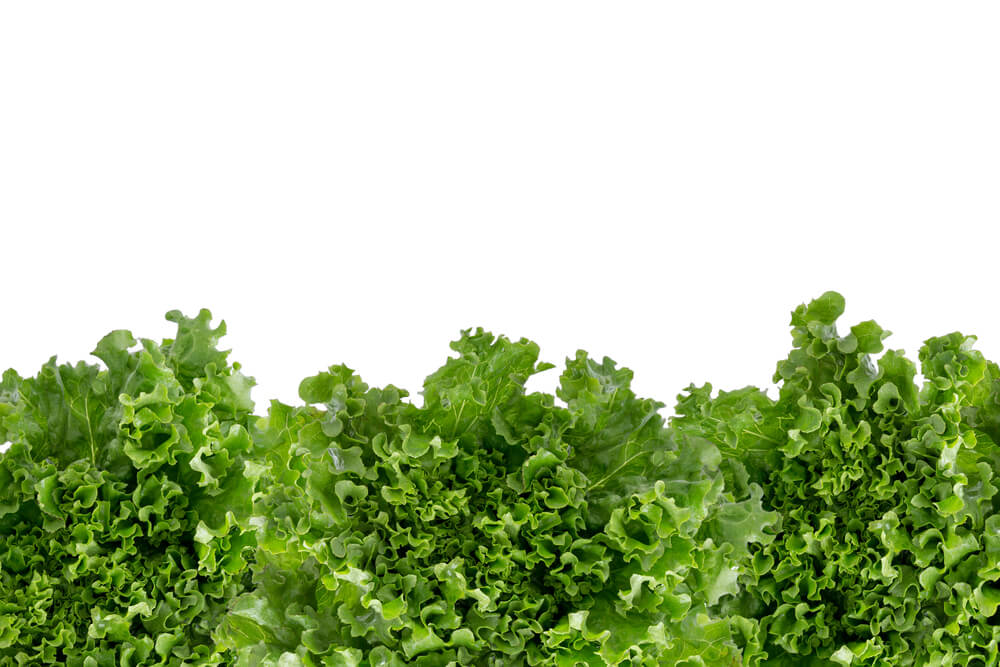
#5 Leafy Greens
Leafy greens are well known as a staple in weight loss diets. This food group includes kale, spinach, and lettuce. It is full of carbs and fiber and therefore has a high thermic effect (though not quite as high as lean proteins).
Greens are packed with nutrients that are important for our bodies to function properly. They are also low in calories. In other words, you can eat greater amounts of leafy veggies than other foods and consume more nutrients.

#6 Ice Water
It might be surprising, but drinking ice water may cause your body to burn more calories. While the results are not definitive, and the thermogenic benefits from drinking ice water are minimal (burning about 10 calories a day), drinking the right amount of water can help keep your metabolism high, rid your body of toxins and suppress your appetite by providing a feeling of fullness.

#7 Eggs
Nutritious, delicious and filling, eggs are another lean protein that you should make a regular part of your healthy diet.
Why?
Not only are they low calorie, but as a lean protein, they boost the rate at which your body burns calories. They are also a cheap option for a thermogenic-focused diet.
The entirety of the egg is packed with nutrition, especially the yolk. If you want to cut down on cholesterol, another option is to eat only the egg white.
Eggs are a very convenient food that can be cooked in a number of ways. Hardboiled eggs can be easily prepared the night before for an easy breakfast. Scrambled eggs and fried eggs are a quick fix as well. Just remember that whatever you use to cook your eggs – butter or oil – will add extra calories and fat content.
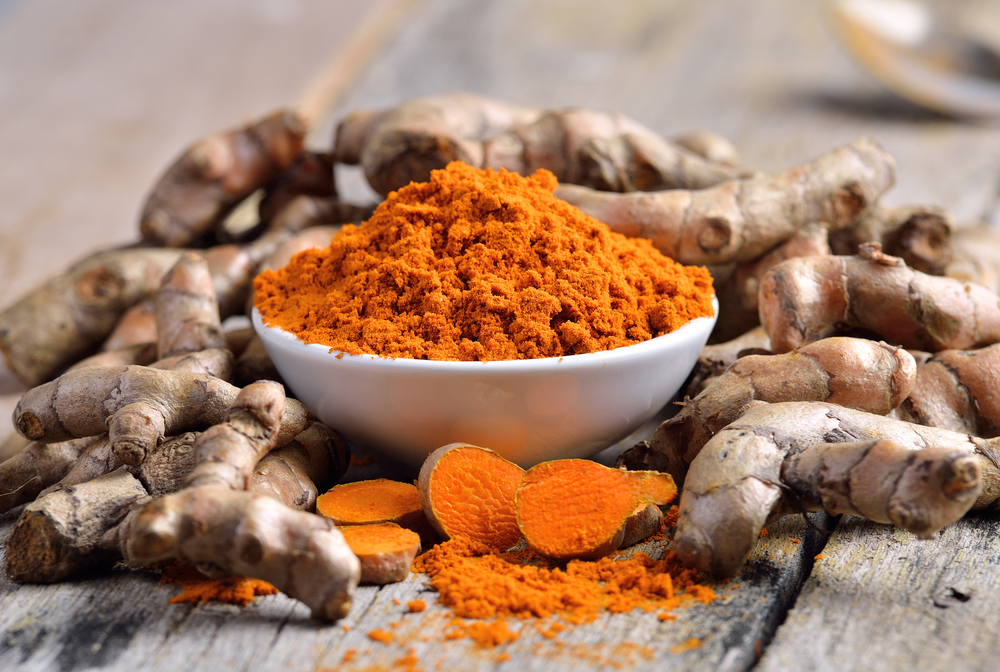
#8 Turmeric
Turmeric is typically found in Indian cuisine. It’s a favored spice of health nuts everywhere for its vast range of uses, both medicinally and for cooking. Turmeric is beneficial for boosting your metabolism, but it’s also a spice that you should include in your diet as a whole if you like it.
Why?
The reason is because of the anti-inflammatory and other beneficial properties of its active compound, curcumin.
Turmeric is a powerful spice, but it is not likely that your body will effectively metabolize and absorb turmeric on its own. To increase the positive effects of turmeric, you should consume it with black pepper, which, coincidentally, is also a spice with high thermic impact.
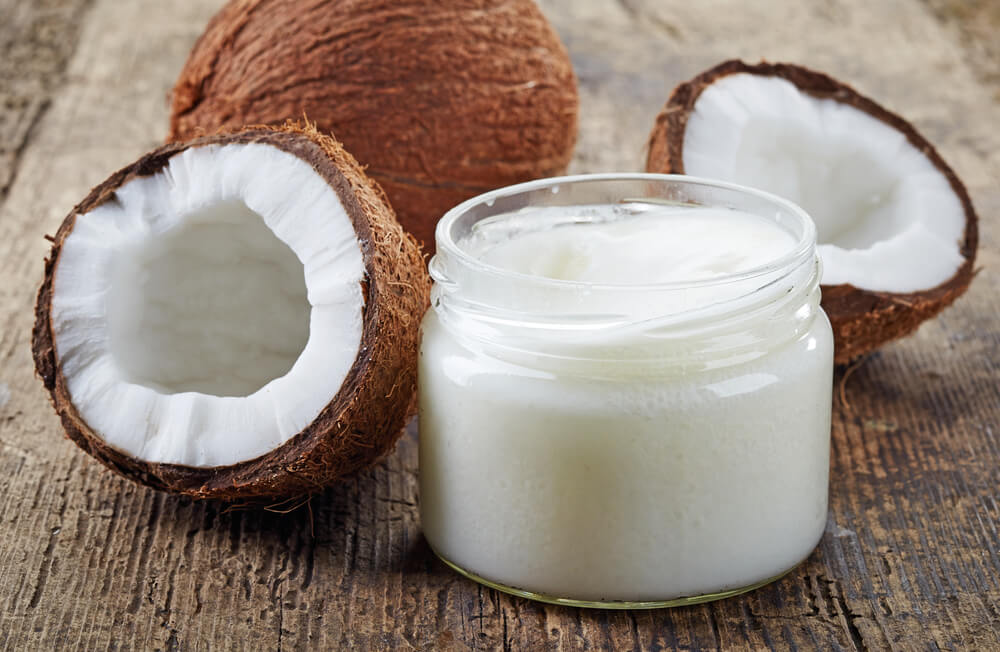
#9 Coconut Oil
You have likely heard a lot about coconut oil over the last few years. As it turns out, it seems to have endless benefits for our bodies, both inside and out. Although coconut oil is a fat, it has been shown to have even greater thermogenic effects than protein.
Why?
The reason is because of the medium chain fatty acids found in coconut oil, which stimulate metabolism.
Coconut oil is used in many ways, such as an ingredient in certain drinks, as well as cooking oil for eggs or veggies. With that said, it is still a fat and should be consumed in moderation because of its high-calorie content.
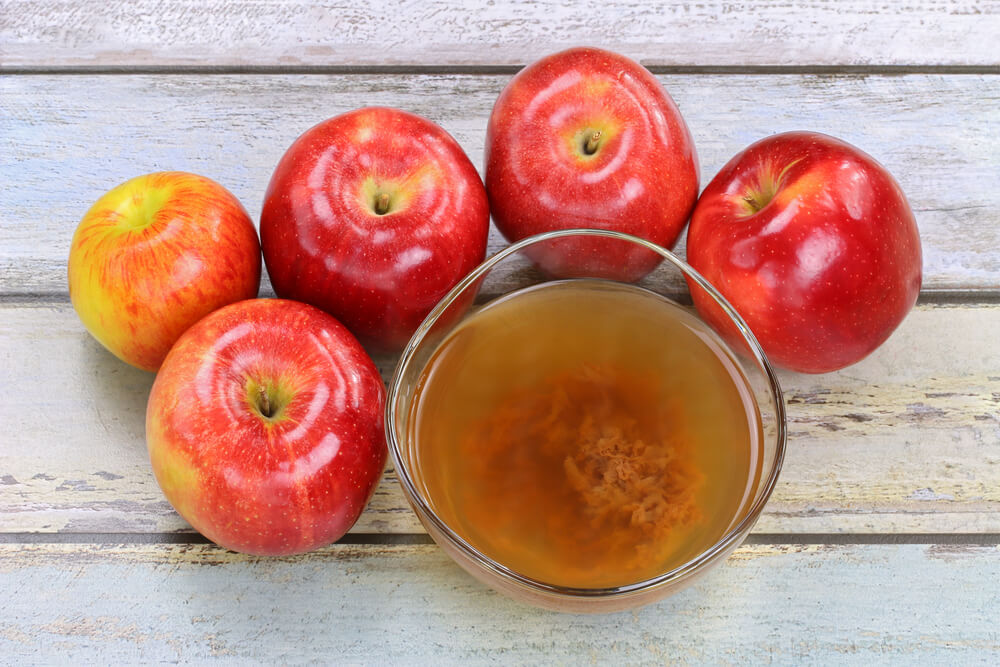
#10 Apples
Apples are great for satisfying your sweet tooth. They’re also a convenient, low-calorie, on-the-go food. Because they contain carbs and fiber, they provide a similar thermogenic effect to coffee. However, one benefit of apples over coffee is that they stimulate a good energy level without causing the same crash that comes with caffeine.
Whether or not you decide to include thermogenics in your diet, apples are a great source of vitamins and minerals. More often than not, they’re a good addition to anyone’s diet. After all, an apple a day keeps the doctor away.
You Might Also Want To Think About These Thermogenic Facts
While thermogenic foods sound like an incredible idea – and they do have a fat-burning effect on the body – their effect is actually minimal. This doesn’t mean that you shouldn’t consider thermogenics when planning out your diet and exercise routine. All it means is that you should bear in mind that you won’t see impressive results if you’re relying solely – or even mostly – on thermic effect to do the work for you.
Conclusion
Thermogenics, while not an effective standalone weight loss method, is an intriguing method to learn for those who engage in a healthy diet and lifestyle or who want to bolster their dietary knowledge. Besides, many foods that are advertised as having a high thermic effect are foods that we should be consuming anyway. That includes such things as apples, lean proteins, and green veggies.
Just remember that there’s no easy way to lose weight and keep it off. Thermogenesis will not do the work of losing weight for you. The most effective weight loss method will always be to eat properly and maintain a regular exercise habit.
By Sarah Butcher











Great Post. Myths debunked of fat burners.
Susan,
Thank you for stopping by!
Terry Asher
I’ve learned a lot from this post. Thanks!
Hey Mark,
Appreciate it man, glad you got something out of the info 🙂
Terry Asher
[…] the world today as an effective fat burner. It is specially designed to offer the precise number of thermogenic properties that is necessary for […]
Its a really effective workout to reduce the fat. Thanks for sharing.
Nice post, thanks for sharing.
Nice post, thanks for sharing
Impressive post, thanks for sharing.
You truly did more than visitors’ expectations. Thank you for rendering these helpful, trusted, edifying and also cool thoughts on the topic